Ken Croswell
Ken Croswell has a Ph.D. in astronomy from Harvard University and is the author of eight books, including The Alchemy of the Heavens: Searching for Meaning in the Milky Way and The Lives of Stars.

Trustworthy journalism comes at a price.
Scientists and journalists share a core belief in questioning, observing and verifying to reach the truth. Science News reports on crucial research and discovery across science disciplines. We need your financial support to make it happen – every contribution makes a difference.
All Stories by Ken Croswell
-
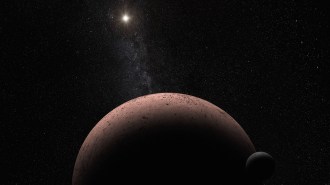 Planetary Science
Planetary ScienceDwarf planet Makemake sports the most remote gas in the solar system
The methane gas may constitute a rarefied atmosphere, or it may come from erupting plumes on Makemake’s surface.
-
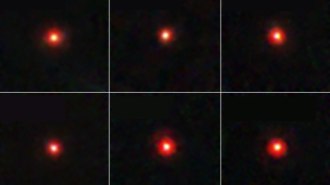 Astronomy
AstronomyMysterious ‘little red dot’ galaxies have a possible origin story
Compact ruddy galaxies seen by the James Webb telescope confound astronomers. Having very little spin at birth may explain the galaxies’ small sizes.
-
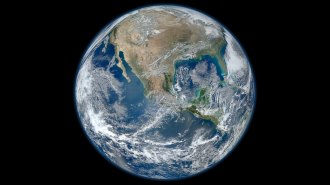 Space
SpaceA passing star could fling Earth out of orbit
Simulations show that the star's tug could send Mercury, Venus or Mars crashing into Earth — or let Jupiter eject our world from the solar system.
-
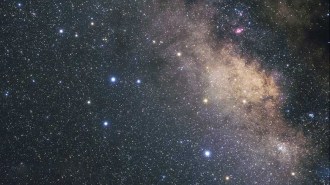 Astronomy
AstronomyYes, there really is a black hole on the loose in Sagittarius
Astronomers now agree: They’ve spotted the first isolated stellar-mass black hole ever seen.
-
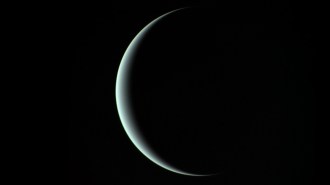 Planetary Science
Planetary ScienceUranus emits more heat than previously thought
Uranus radiates more energy than it gets from the sun, two new studies find — just as Jupiter, Saturn and Neptune do.
-
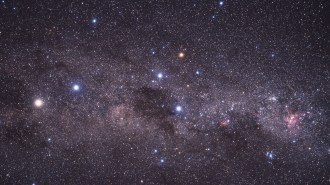 Astronomy
AstronomySome of Earth’s meteors are probably coming all the way from a neighboring star system
The triple star system is sending comets, asteroids and meteors our way, and the number of interstellar objects entering the solar system will rise.
-
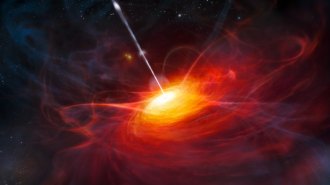 Space
SpaceA distant quasar’s black hole is oddly huge for its galaxy
The black hole’s mass is over half that of all the stars in the surrounding galaxy, a record for any galaxy hosting a quasar.
-
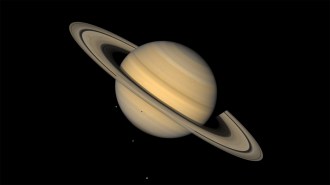 Planetary Science
Planetary ScienceSaturn’s first Trojan asteroid has finally been discovered
Saturn joins the sun’s other giant planets that have Trojans, space rocks that orbit along the same path.
-
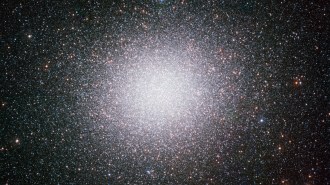 Astronomy
AstronomyThe nearest midsized black hole might instead be a horde of lightweights
Astronomers recently reported that the Milky Way star cluster Omega Centauri hosts an elusive type of black hole. A new study says it does not.
-
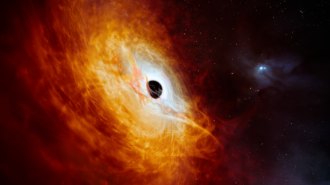 Astronomy
AstronomyA distant quasar may be zapping all galaxies around itself
Star formation has ceased within at least 16 million light-years of the quasar. A similar phenomenon may have fried the Milky Way when it was young.
-
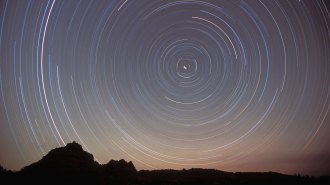 Astronomy
AstronomyThe North Star is much heavier than previously thought
Polaris is about five times as massive as the sun, new observations reveal. That’s around 50 percent heavier than what an earlier study found.
-
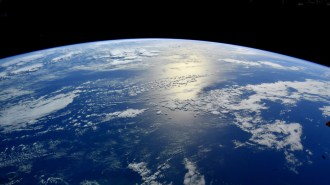 Planetary Science
Planetary ScienceSulfur was key to the first water on Earth
Hydrogen bonded with sulfur may have given our world its first water after the hydrogen broke away and joined with oxygen in the planet’s crust.